- Home
- Herman Melville
Mardi: and A Voyage Thither, Vol. II Page 4
Mardi: and A Voyage Thither, Vol. II Read online
Page 4
"Now, to what purpose that anecdote?" demanded Babbalanja of Mohi, whoin substance related it.
"Marry! 'tis but the simple recital of a fact; and I tell it toentertain the company."
"But has it any meaning you know of?"
"Thou art wise, find out," retorted Braid-Beard. "But what comes ofit?" persisted Babbalanja.
"Beshrew me, this senseless catechising of thine," replied Mohi;"naught else, it seems, save a grin or two."
"And pray, what may you be driving at, philosopher?" interrupted Media.
"I am intent upon the essence of things; the mystery that liethbeyond; the elements of the tear which much laughter provoketh; thatwhich is beneath the seeming; the precious pearl within the shaggyoyster. I probe the circle's center; I seek to evolve theinscrutable."
"Seek on; and when aught is found, cry out, that we may run to see."
"My lord the king is merry upon me. To him my more subtle cogitationsseem foolishness. But believe me, my lord, there is more to be thoughtof than to be seen. There is a world of wonders insphered within thespontaneous consciousness; or, as old Bardianna hath it, a mysterywithin the obvious, yet an obviousness within the mystery."
"And did I ever deny that?" said Media.
"As plain as my hand in the dark," said Mohi.
"I dreamed a dream," said Yoomy.
"They banter me; but enough; I am to blame for discoursing upon thedeep world wherein I live. I am wrong in seeking to invest sublunarysounds with celestial sense. Much that is in me is incommunicable bythis ether we breathe. But I blame ye not." And wrapping round him hismantle, Babbalanja retired into its most private folds.
Ere coming in sight of Uma, we put into a little bay, to pay ourrespects to Hevaneva, a famous character there dwelling; who, assistedby many journeymen, carried on the lucrative business of making idolsfor the surrounding isles.
Know ye, that all idols not made in Maramma, and consecrated byHivohitee; and, what is more, in strings of teeth paid down for toHevaneva; are of no more account, than logs, stocks, or stones. Yetdoes not the cunning artificer monopolize the profits of his vocation;for Hevaneva being but the vassal of the Pontiff, the latter laysclaim to King Leo's share of the spoils, and secures it.
The place was very prettily lapped in a pleasant dell, nigh to themargin of the water; and here, were several spacious arbors; wherein,prostrate upon their sacred faces, were all manner of idols, in everyimaginable stage of statuary development.
With wonderful industry the journeymen were plying their tools;--somechiseling noses; some trenching for mouths; and others, with heatedflints, boring for ears: a hole drilled straight through the occiput,representing the auricular organs.
"How easily they are seen through," said Babbalanja, taking a sightthrough one of the heads.
The last finish is given to their godships, by rubbing them all overwith dried slips of consecrated shark-skin, rough as sand paper,tacked over bits of wood.
In one of the farther arbors, Hevaneva pointed out a goodly array ofidols, all complete and ready for the market. They were of everyvariety of pattern; and of every size; from that of a giant, to thelittle images worn in the ears of the ultra devout.
"Of late," said the artist, "there has been a lively demand for theimage of Arbino the god of fishing; the present being the principalseason for that business. For Nadams (Nadam presides over love andwine), there has also been urgent call; it being the time of thegrape; and the maidens growing frolicsome withal, and devotional."
Seeing that Hevaneva handled his wares with much familiarity, not tosay irreverence, Babbalanja was minded to learn from him, what hethought of his trade; whether the images he made were genuine orspurious; in a word, whether he believed in his gods.
His reply was curious. But still more so, the marginal gestureswherewith he helped out the text.
"When I cut down the trees for my idols," said he, "they are nothingbut logs; when upon those logs, I chalk out the figures of, my images,they yet remain logs; when the chisel is applied, logs they are still;and when all complete, I at last stand them up in my studio, even thenthey are logs. Nevertheless, when I handle the pay, they are as primegods, as ever were turned out in Maramma."
"You must make a very great variety," said Babbalanja.
"All sorts, all sorts."
"And from the same material, I presume."
"Ay, ay, one grove supplies them all. And, on an average, each treestands us in full fifty idols. Then, we often take second-hand imagesin part pay for new ones. These we work over again into new patterns;touching up their eyes and ears; resetting their noses; and moreespecially new-footing their legs, where they always decay first."
Under sanction of the Pontiff, Hevaneva, in addition to his largecommerce in idols, also carried on the highly lucrative business ofcanoe-building; the profits whereof, undivided, he dropped into hisprivate exchequer. But Mohi averred, that the Pontiff often chargedhim with neglecting his images, for his canoes. Be that as it may,Hevaneva drove a thriving trade at both avocations. And in demonstrationof the fact, he directed our attention to three long rows of canoes,upheld by wooden supports. They were in perfect order; at a moment'snotice, ready for launching; being furnished with paddles, out-riggers,masts, sails, and a human skull, with a short handle thrust throughone of its eyes, the ordinary bailer of Maramma; besides otherappurtenances, including on the prow a duodecimo idol to match.
Owing to a superstitious preference bestowed upon the wood and work ofthe sacred island, Hevaneva's canoes were in as high repute as hisidols; and sold equally well.
In truth, in several ways one trade helped the other. The largerimages being dug out of the hollow part of the canoes; and all knottyodds and ends reserved for the idol ear-rings.
"But after all," said the artificer, "I find a readier sale for myimages, than for my canoes."
"And so it will ever be," said Babbalanja.--"Stick to thy idols, man!a trade, more reliable than the baker's."
CHAPTER XIA Nursery-Tale Of Babbalanja's
Having taken to our canoes once again, we were silently sailing along,when Media observed, "Babbalanja; though I seldom trouble myself withsuch thoughts, I have just been thinking, how difficult it must be,for the more ignorant sort of people, to decide upon what particularimage to worship as a guardian deity, when in Maramma, it seems, thereexists such a multitude of idols, and a thousand more are to be heardof."
"Not at all, your highness. The more ignorant the better. Themultitude of images distracts them not. But I am in no mood forserious discourse; let me tell you a story."
"A story! hear him: the solemn philosopher is desirous of regaling uswith a tale! But pray, begin."
"Once upon a time, then," said Babbalanja, indifferently adjusting hisgirdle, "nine blind men, with uncommonly long noses, set out on theirtravels to see the great island on which they were born."
"A precious beginning," muttered Mohi. "Nine blind men setting out tosee sights."
Continued Babbalanja, "Staff in hand, they traveled; one in advance ofthe other; each man with his palm upon the shoulder next him; and hewith the longest nose took the lead of the file. Journeying on in thismanner, they came to a valley, in which reigned a king called Tammaro.Now, in a certain inclosure toward the head of the valley, there stoodan immense wild banian tree; all over moss, and many centuries old,and forming quite a wood in itself: its thousand boughs striking intothe earth, and fixing there as many gigantic trunks. With Tammaro, ithad long been a question, which of those many trunks was the originaland true one; a matter that had puzzled the wisest heads among hissubjects; and in vain had a reward been offered for the solution ofthe perplexity. But the tree was so vast, and its fabric so complex;and its rooted branches so similar in appearance; and so numerous,from the circumstance that every year had added to them, that it wasquite impossible to determine the point. Nevertheless, no sooner didthe nine blind men hear that there was a reward offered fordiscovering the trunk of a tree, standing all b
y itself, than, one andall, they assured Tammaro, that they would quickly settle that littledifficulty of his; and loudly inveighed against the stupidity of hissages, who had been so easily posed. So, being conducted into theinclosure, and assured that the tree was somewhere within, theyseparated their forces, so as at wide intervals to surround it at adistance; when feeling their way, with their staves and their noses,they advanced to the search, crying out--'Pshaw! make room there; letus wise men feel of the mystery.' Presently, striking with his noseone of the rooted branches, the foremost blind man quickly knelt down;and feeling that it struck into the earth, gleefully shouted: Here itis! here it is!' But almost in the same breath, his companions, also,each striking a branch with his staff or his nose, cried out in likemanner, 'Here it is! here it is!' Whereupon they were all confounded:but directly, the man who first cried out, thus addressed the rest:Good friends, surely you're mistaken. There is but one tree in theplace, and here it is.' 'Very true,' said the others, 'all together;there is only _one_ tree; but _here_ it is.' 'Nay,' said the others,'it is _here!_' and so saying, each blind man triumphantly felt of thebranch, where it penetrated into the earth. Then again said the firstspeaker: Good friends, if you will not believe what I say, comehither, and feel for yourselves.' 'Nay, nay,' replied they, why seekfurther? _here_ it is; and nowhere else can it be.' 'You blind fools,you, you contradict yourselves,' continued the first speaker, waxingwroth; 'how can you each have hold of a separate trunk, when there isbut one in the place?' Whereupon, they redoubled their cries, callingeach other all manner of opprobrious names, and presently they fell tobeating each other with their staves, and charging upon each otherwith their noses. But soon after, being loudly called upon by Tammaroand his people; who all this while had been looking on; being loudlycalled upon, I say, to clap their hands on the trunk, they againrushed for their respective branches; and it so happened, that, oneand all, they changed places; but still cried out, '_Here_ it is;_here_ it is!' 'Peace! peace! ye silly blind men,' said Tammaro. 'Willye without eyes presume to see more sharply than those who have them?The tree is too much for us all. Hence! depart from the valley.'"
"An admirable story," cried Media. "I had no idea that a mere mortal,least of all a philosopher, could acquit him-self so well. By myscepter, but it is well done! Ha, ha! blind men round a banian! Why,Babbalanja, no demi-god could surpass it. Taji, could you?"
"But, Babbalanja, what under the sun, mean you by your blind story!"cried Mohi. "Obverse, or reverse, I can make nothing out of it."
"Others may," said Babbalanja. "It is a polysensuum, old man."
"A pollywog!" said Mohi.
CHAPTER XIILanding To Visit Hivohitee The Pontiff, They Encounter AnExtraordinary Old Hermit; With Whom Yoomy Has A ConfidentialInterview, But Learns Little
Gliding on, suddenly we spied a solitary Islander putting out in hiscanoe from a neighboring cove.
Drawing near, the stranger informed us, that he was just from the faceof the great Pontiff, Hivohitee, who, having dismissed his celestialguests, had retired to his private sanctuary. Upon this, Mediaresolved to land forthwith, and under the guidance of Mohi, proceedinland, and pay a visit to his Holiness.
Quitting the beach, our path penetrated into the solitudes of thegroves. Skirting the way were tall Casaurinas, a species of cypress,standing motionless in the shadows, as files of mutes at a funeral.But here and there, they were overrun with the adventurous vines ofthe Convolvulus, the Morning-glory of the Tropics, whose tendrils,bruised by the twigs, dropped milk upon the dragon-like scales of thetrees.
This vine is of many varieties. Lying perdu, and shunning the garishsun through the day, one species rises at night with the stars;bursting forth in dazzling constellations of blossoms, which close atdawn. Others, slumbering through the darkness, are up and abroad withtheir petals, by peep of morn; and after inhaling its breath, againdrop their lids in repose. While a third species, more capricious,refuse to expand at all, unless in the most brilliant sunshine, andupon the very tops of the loftiest trees. Ambitious flowers! that willnot blow, unless in high places, with the bright day looking on andadmiring.
Here and there, we passed open glades in the woods, delicious with theincense of violets. Balsamic ferns, stirred by the breeze, fanned allthe air with aromas. These glades were delightful.
Journeying on, we at length came to a dark glen so deftly hidden bythe surrounding copses, that were it not for the miasma thence wafted,an ignorant wayfarer might pass and repass it, time and again, neverdreaming of its vicinity.
Down into the gloom of this glen we descended. Its sides were mantledwith noxious shrubs, whose exhalations, half way down, unpleasantlyblended with the piny breeze from the uplands. Through its bed ran abrook, whose incrusted margin had a strange metallic luster, from thepolluted waters here flowing; their source a sulphur spring, of vileflavor and odor, where many invalid pilgrims resorted.
The woods all round were haunted by the dismal cawings of crows; tap,tap, the black hawk whetted his bill on the boughs; each trunk stalkeda ghost; and from those trunks, Hevaneva procured the wood for hisidols.
Rapidly crossing this place, Yoomy's hands to his ears, old Mohi's tohis nostrils, and Babbalanja vainly trying to walk with closed eyes,we toiled among steep, flinty rocks, along a wild, zigzag pathway;like a mule-track in the Andes, not so much onward as upward; Yoomyabove Babbalanja, my lord Media above him, and Braid-Beard, our guide,in the air, above all.
Strown over with cinders, the vitreous marl seemed tumbled together,as if belched from a volcano's throat.
Presently, we came to a tall, slender structure, hidden among thescenic projections of the cliffs, like a monument in the dark, vaultedways of an abbey. Surrounding it, were five extinct craters. The airwas sultry and still, as if full of spent thunderbolts.
Like a Hindoo pagoda, this bamboo edifice rose story above story; itsmany angles and points decorated with pearl-shells suspended by cords.But the uppermost story, some ten toises in the air, was closelythatched from apex to floor; which summit was gained by a series ofascents.
What eremite dwelleth here, like St. Stylites at the top of hiscolumn?--a question which Mohi seemed all eagerness to have answered.
Dropping upon his knees, he gave a peculiar low call: no response.Another: all was silent. Marching up to the pagoda, and again droppingupon his knees, he shook the bamboos till the edifice rocked, and itspearl-shells jingled, as if a troop of Andalusian mules, with bellsround their necks, were galloping along the defile.
At length the thatch aloft was thrown open, and a head was thrustforth. It was that of an old, old man; with steel-gray eyes, hair andbeard, and a horrible necklace of jaw-bones.
Now, issuing from the pagoda, Mohi turned about to gain a view of theghost he had raised; and no sooner did he behold it, than with KingMedia and the rest, he made a marked salutation.
Presently, the eremite pointed to where Yoomy was standing; and wavedhis hand upward; when Mohi informed the minstrel, that it was St.Stylites' pleasure, that he should pay him a visit.
Wondering what was to come, Yoomy proceeded to mount; and at lastarriving toward the top of the pagoda, was met by an opening, fromwhich an encouraging arm assisted him to gain the ultimate landing.
Here, all was murky enough; for the aperture from which the head ofthe apparition had been thrust, was now closed; and what littletwilight there was, came up through the opening in the floor.
In this dismal seclusion, silently the hermit confronted the minstrel;his gray hair, eyes, and beard all gleaming, as if streaked withphosphorus; while his ghastly gorget grinned hideously, with all itsjaws.
Mutely Yoomy waited to be addressed; but hearing no sound, andbecoming alive to the strangeness of his situation, he meditatedwhether it would not be well to subside out of sight, even as he hadcome--through the floor. An intention which the eremite must haveanticipated; for of a sudden, something was slid over the opening; andthe apparition seating itself thereupon, the twain were in darknesscomp
lete.
Shut up thus, with an inscrutable stranger posted at the only apertureof escape, poor Yoomy fell into something like a panic; hardly knowingwhat step to take next. As for endeavoring to force his way out, itwas alarming to think of; for aught he knew, the eremite, availinghimself of the gloom, might be bristling all over with javelin points.
At last, the silence was broken.
"What see you, mortal?"
"Chiefly darkness," said Yoomy, wondering at the audacity of thequestion.
"I dwell in it. But what else see you, mortal?"
"The dim gleaming of thy gorget."
"But that is not me. What else dost thou see?"
"Nothing."
"Then thou hast found me out, and seen all! Descend."
And with that, the passage-way opened, and groping through thetwilight, Yoomy obeyed the mandate, and retreated; full of vexation athis enigmatical reception.
On his alighting, Mohi inquired whether the hermit was not a wonderfulpersonage.
But thinking some sage waggery lurked in the question; and at presenttoo indignant to enter into details, the minstrel made some impatientreply; and winding through a defile, the party resumed its journey.
Straggling behind, to survey the strange plants and flowers in hispath, Yoomy became so absorbed, as almost to forget the scene in thepagoda; yet every moment expected to be nearing the stately abode ofthe Pontiff.
But suddenly, the scene around grew familiar; the path seemed thatwhich had been followed just after leaving the canoes; and at length,the place of debarkation was in sight.

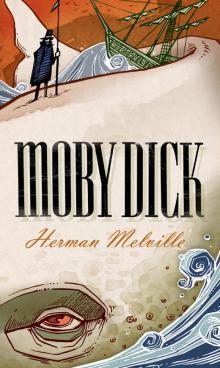 Moby Dick; Or, The Whale
Moby Dick; Or, The Whale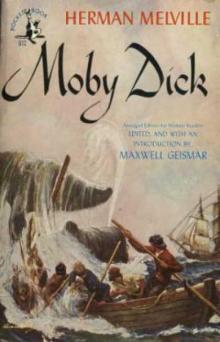 Moby Dick
Moby Dick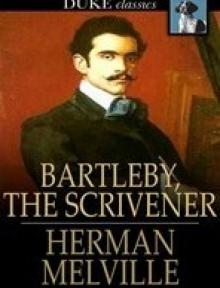 Benito Cereno and Bartleby the Scrivener
Benito Cereno and Bartleby the Scrivener Israel Potter: His Fifty Years of Exile (Annotated Edition)
Israel Potter: His Fifty Years of Exile (Annotated Edition) Billy Budd and the Piazza Tales
Billy Budd and the Piazza Tales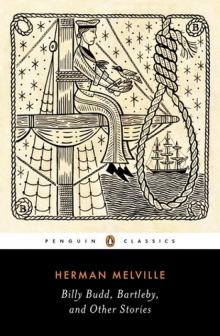 Billy Budd, Bartleby, and Other Stories
Billy Budd, Bartleby, and Other Stories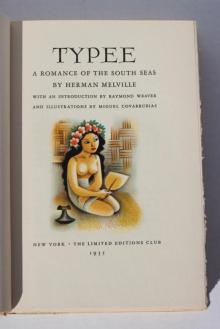 Typee: A Romance of the South Seas
Typee: A Romance of the South Seas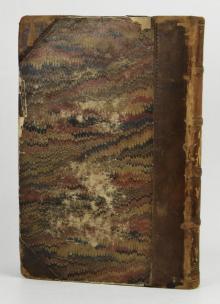 Omoo: Adventures in the South Seas
Omoo: Adventures in the South Seas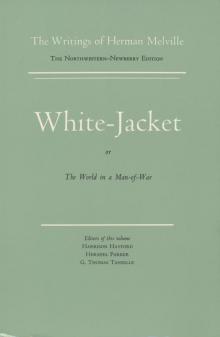 White Jacket; Or, The World on a Man-of-War
White Jacket; Or, The World on a Man-of-War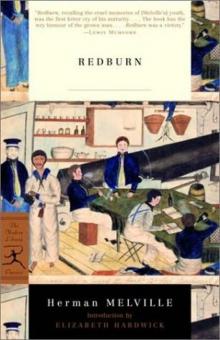 Redburn. His First Voyage
Redburn. His First Voyage Mardi: and A Voyage Thither, Vol. II
Mardi: and A Voyage Thither, Vol. II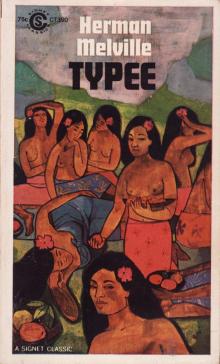 Typee
Typee The Paradise of Bachelors and the Tartarus of Maids
The Paradise of Bachelors and the Tartarus of Maids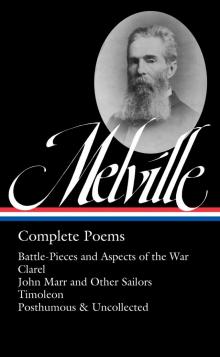 Herman Melville- Complete Poems
Herman Melville- Complete Poems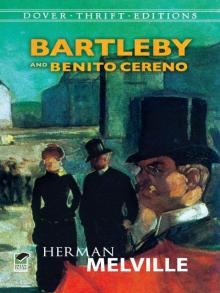 Bartleby and Benito Cereno
Bartleby and Benito Cereno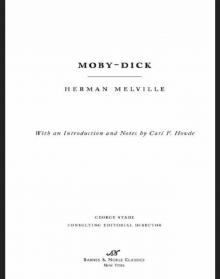 Moby-Dick (Barnes & Noble Classics Series)
Moby-Dick (Barnes & Noble Classics Series)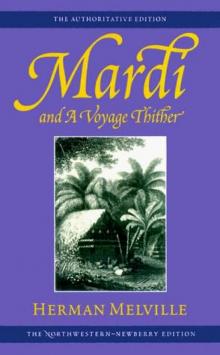 Mardi and a Voyage Thither
Mardi and a Voyage Thither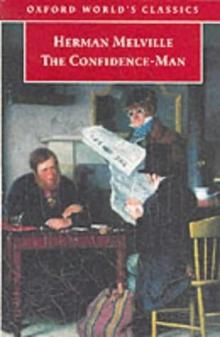 The Confidence-Man
The Confidence-Man Billy Budd and Other Stories
Billy Budd and Other Stories Bartleby the Scrivener
Bartleby the Scrivener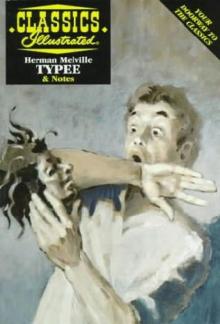 Typee: A Romance of the South Sea
Typee: A Romance of the South Sea I and My Chimney
I and My Chimney Billy Budd
Billy Budd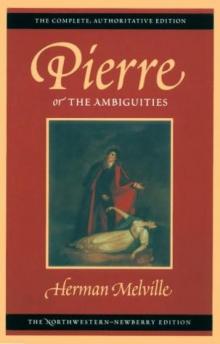 Pierre, Or the Ambiguities
Pierre, Or the Ambiguities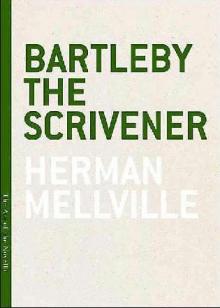 Bartleby, The Scrivener A Story of Wall-Street
Bartleby, The Scrivener A Story of Wall-Street Four Great American Classics
Four Great American Classics White Jacket or, The World on a Man-of-War
White Jacket or, The World on a Man-of-War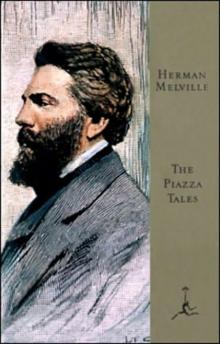 The Piazza Tales
The Piazza Tales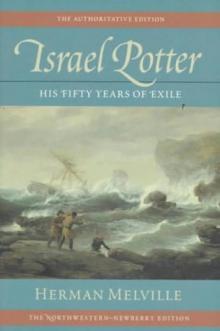 Israel Potter. Fifty Years of Exile
Israel Potter. Fifty Years of Exile